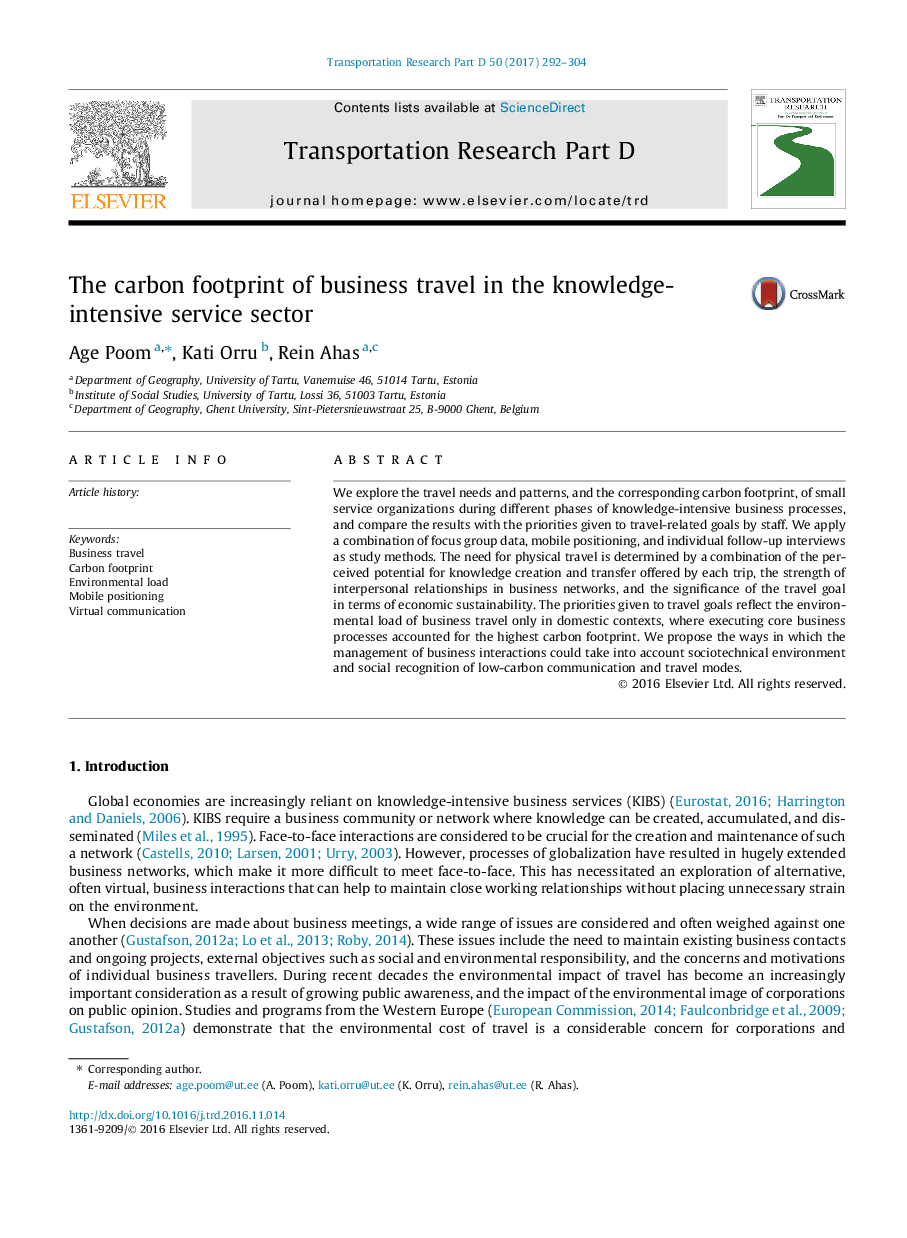ترجمه فارسی عنوان مقاله
راندمان کربن کسب و کار در بخش خدمات دانش فشرده
عنوان انگلیسی
The carbon footprint of business travel in the knowledge-intensive service sector
| کد مقاله | سال انتشار | تعداد صفحات مقاله انگلیسی |
|---|---|---|
| 104751 | 2017 | 13 صفحه PDF |
منبع

Publisher : Elsevier - Science Direct (الزویر - ساینس دایرکت)
Journal : Transportation Research Part D: Transport and Environment, Volume 50, January 2017, Pages 292-304
ترجمه کلمات کلیدی
سفر تجاری، رد پای کربن، بار محیط زیست، موقعیت مکانی ارتباطات مجازی،
کلمات کلیدی انگلیسی
Business travel; Carbon footprint; Environmental load; Mobile positioning; Virtual communication;
ترجمه چکیده
ما در حال بررسی نیازها و الگوهای سفر و روندهای مربوط به کربن از سازمانهای خدمات کوچک در مراحل مختلف فرایندهای کسب و کار فشرده دانش هستیم و نتایج را با اولویت های کارکنان مرتبط با اهداف سفر مقایسه می کنیم. ما ترکیبی از داده های گروه تمرکز، موقعیت مکانی و مصاحبه های پیگیری فردی را به عنوان روش های مطالعه اعمال می کنیم. نیاز به سفر فیزیکی با ترکیبی از پتانسیل درک شده برای ایجاد دانش و انتقال ارائه شده توسط هر سفر، قدرت روابط بین فردی در شبکه های کسب و کار و اهمیت هدف سفر از لحاظ پایداری اقتصادی تعیین می شود. اولویت هایی که به اهداف سفر اختصاص داده شده، بار محیط زیست سفر تجاری را فقط در شرایط داخلی نشان می دهند، در حالی که اجرای فرایندهای اصلی اصلی برای بالاترین میزان کربن است. ما راه هایی را پیشنهاد می کنیم که مدیریت تعاملات تجاری را می توان با توجه به محیط زیست اجتماعی و شناخت اجتماعی ارتباطات و شیوه های مسافرت کم کربن مورد توجه قرار داد.

